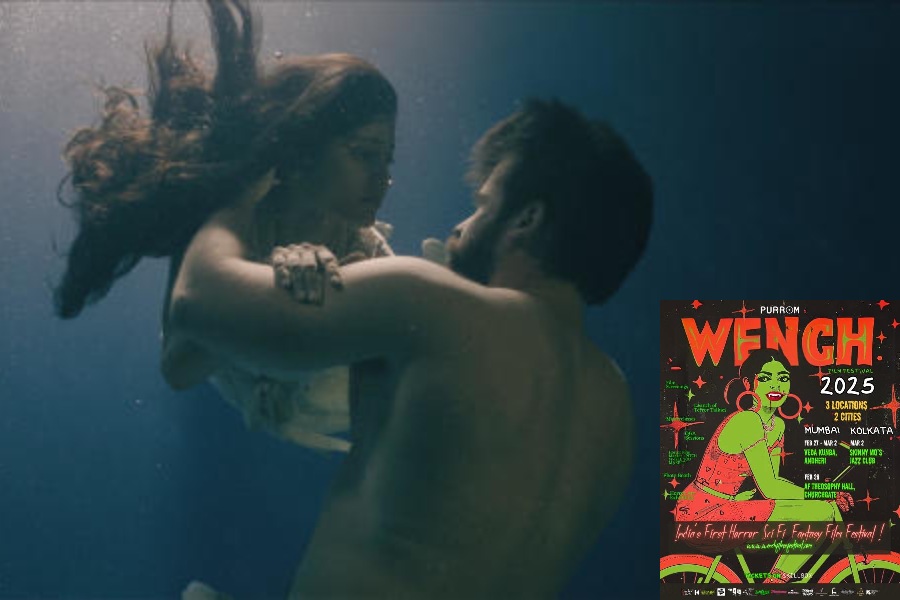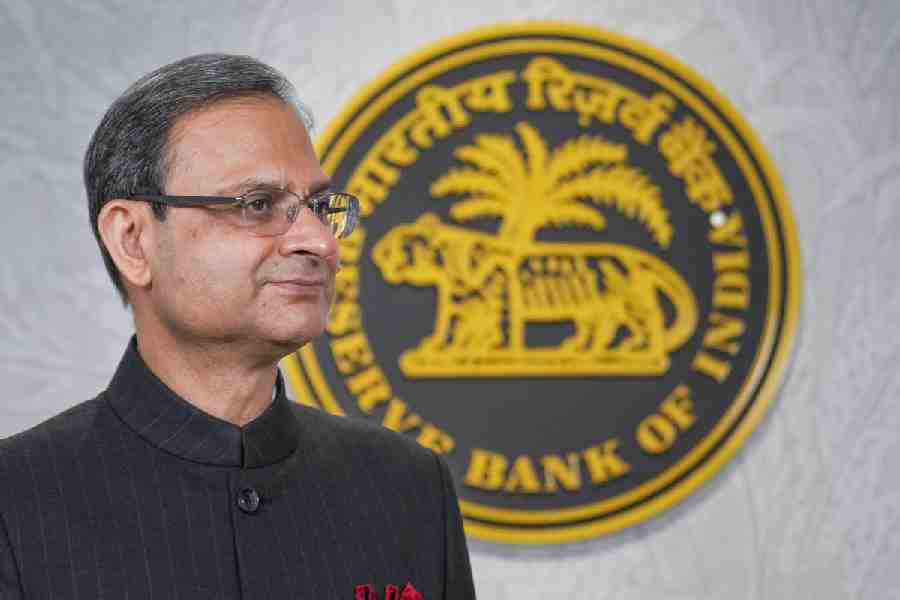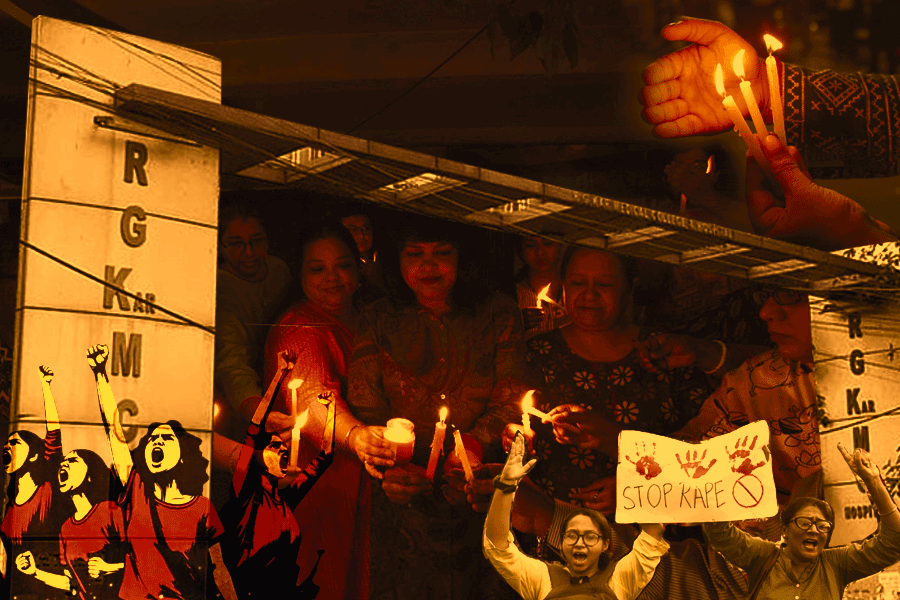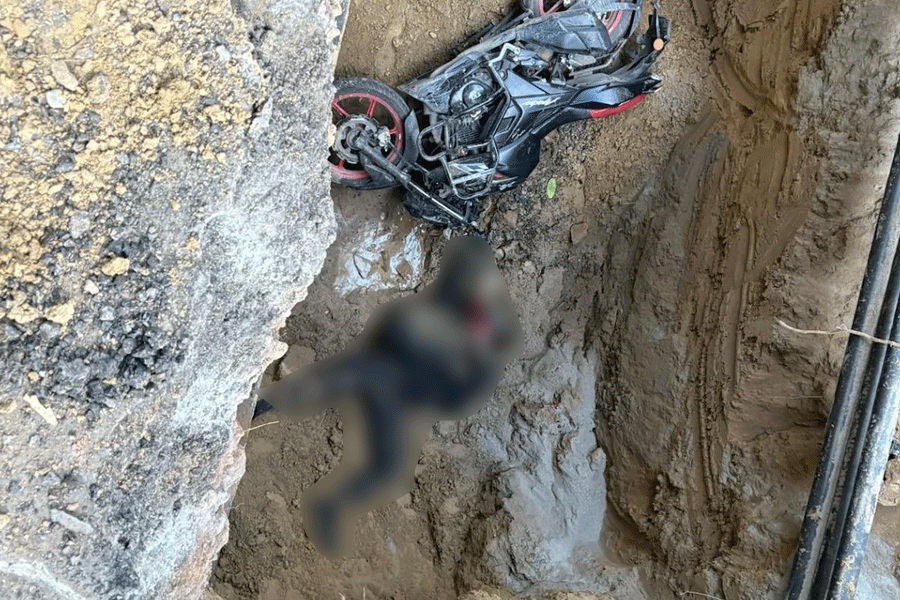The fifth edition of Wench Film Festival, India’s first horror film festival, founded by filmmaker Sapna Bhavnani, will include 42 films, including those by LGBTQIA+ and non-binary filmmakers, to be held between February 27 and March 2. In addition to Mumbai, the festival travels to Calcutta for the first time.
With this edition, the festival attempts to bring the female perspective to the centre stage by screening 35 films by women filmmakers out of the 42 films scheduled. This year, Wench collaborates with the world’s top genre fests — Fantasia and Imagine Fantastic Film Festival. The programme includes seven Indian and 35 international films with 13 India premieres, 25 Asia premieres and three world premieres.
The Calcutta edition will take place at Skinny Mo’s Jazz Club on March 2.One of the highlights of the festival this year is the launch of India’s first horror/ sci-fi publication Terror Talkies and masterclasses by Riksundar Banerjee and filmmaker Vishal Furia. The Telegraph chatted with Bhavnani — also famous as a celebrity hairstylist — to know more.
What was the genesis of Wench?
A few years ago, I had seen a panel of only male filmmakers discussing films based on women. It got my blood boiling and I asked them if they had even thought about including a woman filmmaker. In response, one of the male filmmakers asked me: ‘But where are the women filmmakers?!’ That is how Wench was born.
The first year was not horror... it was women making films in all genres. It was during the pandemic and we had an online edition of the festival. We had a big selection of films and it did really well. The goal of doing it was that the next time someone asked me where the women filmmakers were, I could point to the festival and say: ‘Here they are!’
Later that year, I wrote a story that was selected at a genre festival in Korea. I found out then that I was the first Indian woman ever in the horror market who had written a script that was accepted there. That got me thinking that we are so much into filmmaking and yet this country is hardly known for the genres of horror, sci-fi and fantasy, all of which are such worldwide phenomena. That realisation made me change the goal of Wench. It is now a film festival which centres on horror, fantasy and sci-fi. That is our specialty. In 2022, we started as a Fantastic film festival, which was India’s first, and I later discovered that we are also Asia’s second.
Initially, it was small. Whistling Woods (a film school in Mumbai) gave us a little space where we could have a limited screening. We started with Aruna Raje’s Gehrayee (1980), which was the first film made by an Indian woman filmmaker in the horror genre. But we didn’t have too many other Indian films in that genre to curate. Cut to 2024, we were flooded with so many films that we had to have an India-focused day, in which we had so many films made in these genres in India. In 2025, we are also taking the festival to Calcutta. It is great to see the genre is growing in India and how the indie film market is evolving.
What is the goal of Wench?
To have indie sensibilities and not to grow so big where the filmmakers stop being the stars of their films. We want to celebrate the people who make such films. Worldwide, horror and genre films focus on the story, it is never about the stars of the film. A great part about our festival is that most of these stories don’t have stars.
But then, last year, the world has seen a film like The Substance, which has a big star at the forefront (Demi Moore) and is eyeing a couple of Oscars next week. It is a body-horror film directed by a woman (Coralie Fargeat), which is also a first in a long time.
What have been the biggest challenges of sustaining a festival like this?
I don’t have sponsors and I have learned to do graphics in order to make my posters, I do all the social media work of the festival myself. I am a filmmaker, too, and I have learnt to edit and grade films. Acquiring a new skill is never a bad thing to have, but I had to pick up all this because we never get enough money from producers to have a team... we are constantly doing a lot of things ourselves.
Even two years ago, Everything Everywhere All At Once, which is a fantasy film on many levels, won so many Oscars. Horror, fantasy and sci-fi are ruling in America and Europe. In India, we haven’t got there yet because we don’t focus on story. There are no budgets. We haven’t figured out the aspect of using our own folklore and creating great stories. Tumbbad did it in a small way and I think that was great. But, we don’t have a sizeable selection of films in such genres.
What is Wench doing to change that?
The festival has garnered a lot of attention — our jury members are from all over the world and they are also seeing how we have grown. They are taking these Indian films and making the world see them. It has been a big stepping stone for filmmakers.
But somewhere, I got wrapped up in the whole business angle and I knew that I needed a sponsor. That kind of killed the joy for me a bit. When I started my salon, Mad O Wat, it was for passion, just like when I started Wench. And I never really thought about money, even though for the first two-three years, we had no income and I put in all my savings.
What is new at Wench this year?
It is the passion for Wench that solely drives me. It also takes me back to what I love doing... hair, make-up and fashion play such a big role in horror films and I come from that background myself. I have learnt the art of prosthetics and I also have a prosthetic art show as part of Wench this year. I have picked a really wonderful artist and she is doing an exhibit about miscarriages and PCOD, and it is called ‘Still Alive’.
I am also launching India’s first horror/ sci-fi publication called Terror Talkies. I don’t want Wench to be limited to just a festival. I feel that genre films in India are not reviewed as much as they should be and this will be a portal that focuses only on genres like fantasy, sci-fi, cosplay. Our audience mainly comprises Gen Z and I think they are ready for different kinds of experiences. Wench is a beautiful, niche property and I want it to grow organically.
This is also a year-round festival. On Halloween, we do different events. Last year, we did Zombie Con, which was India’s first zombie walk. The aim is keep growing by pushing and changing norms. We also have to understand that horror isn’t always mean and terrifying and that witches are not always ugly and wicked.
You have also collaborated with World for All Animal Care for this edition. Tell us about that...
Last year, during Diwali, which happened to be around Halloween, we decided to raise awareness about how dogs get affected by the sound of crackers. We raised awareness by having ‘dog zombies’ at Zombie Con. And this year, Sukant Panigrahy (film production designer) will also raise awareness with an installation. I have started making origami birds and he is doing an installation with birds. It is called ‘Silent Sky’.
What made you want to come to Calcutta this year?
Calcutta is the hub of fantastic folklore. I have been wanting to take Wench to Calcutta and this year we are doing so. The response has been terrific in Calcutta. I am very excited and hopefully, we can go bigger there. I also got some calls from Delhi and Goa, so let’s see.
What can we expect in Calcutta?
Riksundar Banerjee, a scholar and an author who has also written a book on Indian ghosts, will deliver a talk, the idea of which is to ask why is it that we are constantly looking to the Western idea of ghosts when we have our own. ‘The Indian art of ghosting’ is the name of his masterclass. He will also talk about women in horror and the days of the woman ghost. There are some amazing films to be screened there. There is also going to be a vinyl music listening party. I am quite excited for March 2 in Calcutta, and I wish I could be there, but it also happens to be the closing night of the festival in Bombay, and I need to be here.
When did your interest in the genre start?
As a child. My mom and my nanny used to call spirits all the time... I have such good memories of calling spirits and getting answers. I talk to my father’s spirit all the time. We are all spirits. Right now, we are living in a body. When we leave this body, we go to another body or maybe we don’t.
Did you watch a lot of horror films growing up?
I am 54 and when I was a kid, we didn’t have that much access. But in my teens, I watched Carrie (1976), and it was right before I got my first period. No one had ever told me what that was and like Carrie, I actually thought I had special powers and was going to burn down my school, which I was very happy about! (Laughs) At 18, I moved to America and there I watched a lot of horror films. Anyway, when I was growing up, Indian horror was mostly Ramsay (Brothers) and even now, most films in the genre need to evolve and not be silly. We are not being able to create it because we don’t spend a lot of time in developing stories, and not just in horror.
For more on Wench
Film Festival in Calcutta,
visit www.wenchfilmfestival.com










